January 27 - The International Day of Commemoration in Memory of the Victims of the Holocaust
Article published on 26-01-2024In 2005, the United Nations General Assembly officially designated January 27 as the International Day of Commemoration in Memory of the Victims of the Holocaust, according to Resolution 60/7 titled “Holocaust Remembrance.” This date commemorates the Soviet Army's liberation of the Auschwitz-Birkenau, a German Nazi Concentration and Extermination Camp.
Annually around this date, UNESCO honors the victims of Nazi persecution, bringing to light the Holocaust's history, its origins, global impact, and ongoing repercussions in contemporary society. Eight decades post-genocide, UNESCO Member States uphold a shared duty to manage the lingering trauma, uphold remembrance policies, preserve historical sites, and foster education, documentation, and research.
In observance of the International Day of Commemoration in Memory of the Victims of the Holocaust, UNESCO presents a multimedia exhibition titled “Blue skies,” focusing on collective trauma and the act of remembering.
Belgian artist Anton Kusters dedicated six years to capturing photographs of the empty blue skies above various Nazi concentration and extermination camps across Europe. These camps, operational from 1933 to 1945 (a span of 4432 days), were systematic frameworks for incarceration, forced labor, and mass murder, leaving behind scant physical evidence of the atrocities committed there.
Kusters' poignant and abstract assembly features 1078 images of blue skies, each marked with the geographical coordinates and the number of victims, complemented by a sound installation from artist Ruben Samama. This installation, titled “The Tracking of One Thousand and Seventy-eight Blue Skies,” resonates with a distinct tone for each victim of the camps. Additionally, a looping silent video titled “There is Nothing Here” by Kusters captures his visits to these hauntingly empty Nazi persecution sites.
Curated by Monica Allende, the "Blue Skies" project is notably supported by the Permanent Delegations of Belgium and Germany to UNESCO. The exhibition is open between January 23 and February 9 at UNESCO's Paris headquarters.
UNESCO’s International Programme on Holocaust and Genocide Education, created in partnership with the United States Holocaust Memorial Museum in 2015, addresses gaps in Holocaust education worldwide. This program, now in its third cycle, collaborates with Member States to tailor Holocaust and genocide education to local contexts. Additionally, UNESCO is developing educational resources tailored to specific regions, such as a guide for African teachers on genocide education and a Latin American Network on Holocaust and Genocide Education. To combat rising antisemitism, UNESCO organizes training workshops for policymakers and teacher trainers globally, in partnership with various institutions.








